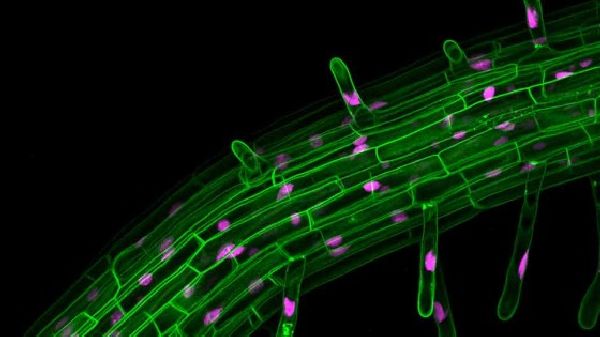Synthetic Biology is a field that is still in the nascent stage of development. This unique field of science depends a lot on the ability to understand, map, comprehend and possibly replicate the complex cellular activity and genetic structure in plant tissues. The field of Synthetic Biology deals with engineering artificial biological systems and circuits that will mimic natural ones found in plants systems and will help in design of future products that are far more efficient and ecological than man made artificial ones.

To help aid in this unique and amazing branch of science, researchers at the University of Cambridge’s Department of Plant Sciences have created fluorescent proteins that will allow us to map a living and functioning plant tissue. A team of scientists have been able to induce fluorescence into living and functioning plant systems and by analyzing it with advanced imaging techniques and algorithms, one can understand better the inner cellular workings of these complex networks.
Many plants have an incredible ability to repair tissue damage, synthesize chemicals that help in self repair and reproduction. Till now our understanding of this process and its working mechanism was limited. But with the new technique, those who are trying to figure out the next big step in Synthetic Biology can observe and understand the intricate networks in action, and can try to map them with additional information. This new process, which is being dubbed as ‘planta cytometry’ will hopefully open up new doors in the field of biological engineering.
Via: Cam




